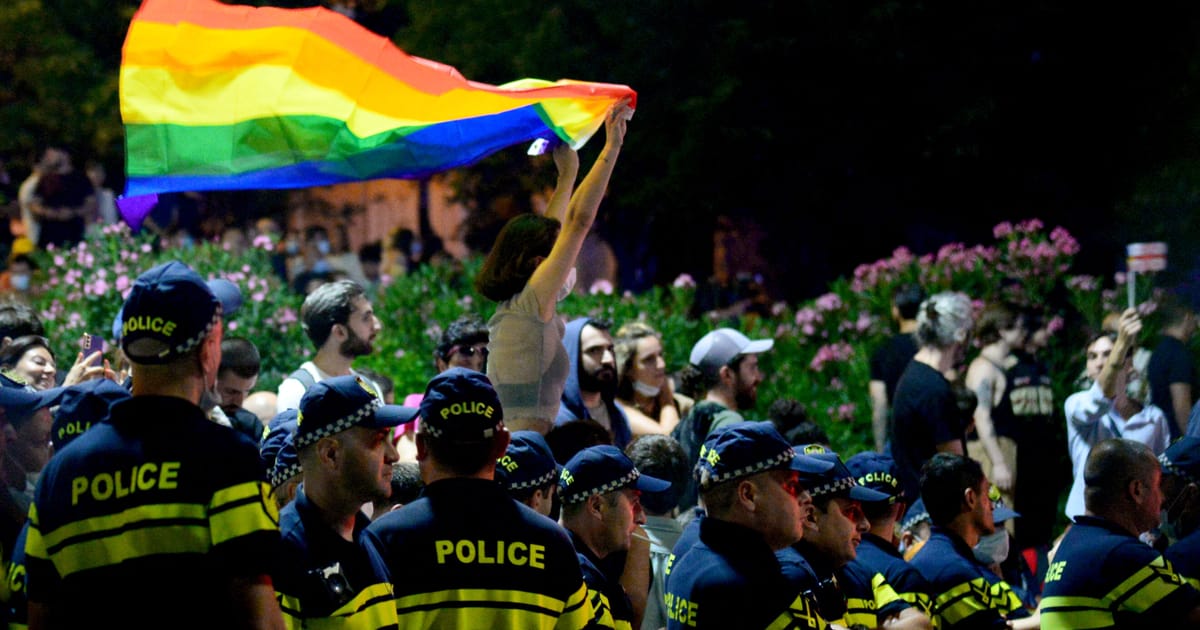Proposed restrictions on LGBTQ+ rights have proven far harder for politicans at home and abroad to unite against than the government’s “foreign agent” bill.
“No racism, sexism, homophobia or transphobia,” reads a sign in a small vegan café in the center of the Georgian capital, an EU flag pinned across the counter.
“The other day, I was looking at a picture I took in 2013 with my friends who are queer activists, and I realized 90 percent of them have now left for other European countries,” said Atina Bregvadze, a feminist campaigner in Tbilisi, for whom the café is one of just a few remaining welcoming places.
At the same time, outside, thousands of parents, children and priests clad in black robes were gathering in the streets for a rally to celebrate “Family Purity Day,” the public holiday declared by the government to rival Friday’s International Day Against Homophobia, Biphobia and Transphobia (IDAHOBIT).
Now, many in Georgia’s LGBTQ+ community fear their small country is running out of space to accommodate both of these very different worlds.



This is the best summary I could come up with:
Activists fear it will have the same effect as rules used by the Kremlin to outlaw critical voices, and the EU has said passage of the legislation would torpedo Georgia’s chances of joining the bloc, just six months after it was granted candidate status.
But protest organizers suspended activity on Friday, fearing the risk of clashes between those opposed to the government’s increasingly authoritarian turn and far-right activists celebrating “Family Purity Day.” It’s just the latest in a series of decisions many have had to make about their safety in a conservative and deeply religious country, where the LGBTQ+ community has never been widely accepted but is now the target of a raging culture war.
Rights activists have faced a growing tidal wave of violence and intimidation in recent years, and they accuse Georgian Dream of turning a blind eye to far-right groups like Alt.Info that incite hatred, often with the tacit support of influential church leaders.
That strategy seems to be working and opposition politicians are being put in an increasingly difficult spot — forced to either stay silent on the social issues being weaponized by the government, or play into its hands by championing LGBTQ+ and women’s rights which are far from universally popular with voters.
The European Commission in December granted Georgia EU candidate status, handing Georgian Dream a major political win at home, despite its clear failures to meet the criteria for its application to move forward.
“Georgian Dream’s narrative suggests that the West is pushing what they call ‘pseudo-liberal ideology’ and LGBTQ propaganda,” said Tavadze, the Pride activist, “when in reality, the EU and the initiatives it supports are simply helping queer people obtain their fair rights.
The original article contains 1,206 words, the summary contains 282 words. Saved 77%. I’m a bot and I’m open source!